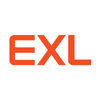Accounts Payable Accountant
10+ Accounts Payable Accountant Interview Questions and Answers

Asked in EXL Service

Q. What is an invoice and what can we see in a invoice
An invoice is a document that lists the products or services provided by a vendor and the amount due for payment.
An invoice includes the vendor's name and contact information
It lists the products or services provided and their prices
It includes the total amount due and any applicable taxes or discounts
It may also include payment terms and due dates
Examples of invoices include bills from utility companies, invoices from suppliers, and receipts from online purchases

Asked in Wood Group

Q. What is the difference between intercompany and intracompany transactions?
Intercompany refers to transactions between two or more companies within the same group, while intracompany refers to transactions within the same company.
Intercompany transactions involve multiple legal entities within a corporate group.
Intracompany transactions occur within a single legal entity.
Intercompany transactions may involve transfer pricing and elimination entries.
Intracompany transactions do not require transfer pricing or elimination entries.
Examples of intercomp...read more
Accounts Payable Accountant Interview Questions and Answers for Freshers

Asked in Genpact

Q. What are fictious assets , amortization, surplus account in profit and loss
Fictitious assets are non-physical assets with no real value, amortization is the gradual write-off of an asset's cost, and surplus account in profit and loss is used to record excess profits.
Fictitious assets are intangible assets that do not have a physical existence, such as goodwill or patents.
Amortization is the process of spreading the cost of an intangible asset over its useful life, similar to depreciation for tangible assets.
Surplus account in profit and loss is used...read more

Asked in Genpact

Q. What are the golden rules of accounting?
Golden rules of accounts are basic principles to maintain accurate financial records.
Debit the receiver, credit the giver
Debit what comes in, credit what goes out
Debit expenses and losses, credit income and gains
These rules ensure accuracy and consistency in financial reporting
For example, when a company receives cash from a customer, the accounts receivable account is debited and the cash account is credited

Asked in Genpact

Q. What are the accounting concepts?
Accounting concepts are fundamental principles and guidelines that govern the field of accounting.
Accounting concepts provide a framework for recording, analyzing, and reporting financial transactions.
Some common accounting concepts include the accrual concept, the going concern concept, and the matching concept.
The accrual concept states that transactions should be recorded when they occur, not when the cash is received or paid.
The going concern concept assumes that a busine...read more

Asked in EXL Service

Q. What are the main accounting concepts?
The main accounting concepts are the principles and guidelines that govern the preparation and presentation of financial statements.
Going Concern Concept
Consistency Concept
Accrual Concept
Prudence Concept
Materiality Concept
Entity Concept
Money Measurement Concept
Cost Concept
Dual Aspect Concept
Accounts Payable Accountant Jobs




Asked in Genpact

Q. What is vouchers ? What bad debts? What is salary entry?
Vouchers are documents used to record financial transactions, bad debts are uncollectible debts, and salary entry is the recording of employee salaries in accounting records.
Vouchers are used to document and track financial transactions within a company.
Bad debts are debts that are unlikely to be collected from customers and are written off as losses.
Salary entry involves recording employee salaries in the accounting system for accurate financial reporting.
Vouchers can includ...read more

Asked in Genpact

Q. What is Bank reconciliation? What is types of errors inBRS?
Bank reconciliation is the process of comparing the balance in the company's accounting records to the balance in the bank statement.
Bank reconciliation helps identify discrepancies between the company's records and the bank statement.
Types of errors in bank reconciliation include timing differences, errors in recording transactions, and bank errors.
For example, a timing difference could occur if a deposit made at the end of the month is not reflected in the bank statement un...read more
Share interview questions and help millions of jobseekers 🌟


Asked in Capgemini

Q. What is Accounts Receivable?
Accounts Receivable is the money owed to a company by its customers for goods or services provided on credit.
It is an asset account on the balance sheet
It represents the amount of money that a company expects to receive from its customers
It is usually collected within a certain period of time, typically 30-90 days
Examples include invoices sent to customers for payment of goods or services provided
It is important for a company to manage its accounts receivable to ensure timely...read more

Asked in Genpact

Q. What do you know about accounts payable?
Accounts payable is the amount of money a company owes to its vendors or suppliers for goods or services received.
Accounts payable is a liability account that tracks the money a company owes to its vendors or suppliers.
It includes invoices, bills, and other expenses that have not yet been paid.
Accounts payable is an important part of a company's cash flow management.
Examples of accounts payable include rent, utilities, and inventory purchases.
Accounts payable can be managed t...read more

Asked in Genpact

Q. What is Accounts Payable?
Accounts payable is the amount owed by a company to its suppliers for goods or services received but not yet paid for.
Accounts payable is a liability account in the company's balance sheet.
It includes invoices from vendors, utility bills, and other expenses.
The payment terms and due dates are agreed upon by the company and the supplier.
Accounts payable is an important aspect of cash flow management.
Examples of accounts payable include rent, office supplies, and raw materials.

Asked in Genpact

Q. Accounts payable cycle vs p2p cycle
Accounts payable cycle involves processing invoices and making payments, while P2P cycle includes the entire procure-to-pay process from requisition to payment.
Accounts payable cycle focuses on processing invoices, obtaining approvals, and making payments to vendors.
P2P cycle includes the entire procure-to-pay process, starting from requisitioning goods or services, receiving them, and finally making payments.
Accounts payable cycle is a subset of the P2P cycle, which encompas...read more

Asked in Genpact

Q. What is your experience with purchase orders?
Purchase order is a document that authorizes a purchase transaction.
It is a formal request for goods or services
It includes details such as quantity, price, and delivery date
It helps to ensure that purchases are authorized and within budget
It is used to match invoices with goods received
It can be created manually or electronically

Asked in Genpact

Q. What is your experience with the matching process?
Matching process ensures accuracy of invoices and payments.
Matching process involves comparing invoice details with purchase orders and receipts.
It helps in identifying discrepancies and resolving them before payment.
Matching can be done manually or through automated software.
It is a crucial step in accounts payable to prevent errors and fraud.
Matching also helps in maintaining good relationships with vendors.

Asked in EXL Service

Q. How would you record rent paid in a ledger entry?
The ledger entry for rent paid is a credit to cash and a debit to rent expense.
Debit rent expense account for the amount paid
Credit cash account for the same amount
Record the transaction in the general ledger
Ensure accuracy of the amounts and accounts used
Example: Debit Rent Expense $1,000, Credit Cash $1,000

Asked in Genpact

Q. What is a purchase order?
A purchase order is a commercial document issued by a buyer to a seller, indicating the type, quantity, and agreed price of products or services.
A purchase order is a formal request made by a buyer to a seller to purchase goods or services.
It serves as a legally binding contract between the buyer and the seller.
The purchase order includes details such as the type and quantity of items, agreed prices, delivery dates, and payment terms.
It helps in streamlining the procurement p...read more

Asked in ICICI Bank

Q. What are fixed assets?
Fixed assets are long-term tangible assets that are used in the production of goods or services and have a useful life of more than one year.
Fixed assets are physical assets that a company owns and uses for its operations.
They are not intended for sale and are expected to provide economic benefits over a long period of time.
Examples of fixed assets include buildings, machinery, vehicles, furniture, and land.
They are recorded on the balance sheet and depreciated over their use...read more
Interview Questions of Similar Designations
Interview Experiences of Popular Companies








Reviews
Interviews
Salaries
Users

















